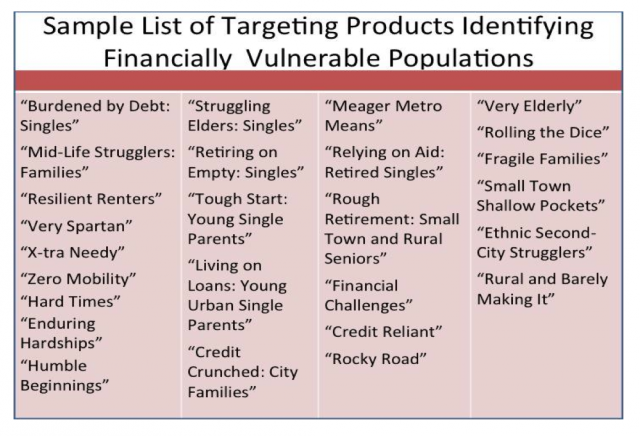In today's digital age, the realm of cosmetics has undergone a transformative shift, blending seamlessly with technology to enhance consumer experiences. This section delves into How to remove BlockShopper listing information collectors play a pivotal role in shaping the landscape of tailored cosmetic offerings. By analyzing vast arrays of consumer information, these entities help brands craft solutions that resonate deeply with individual preferences and needs.
The integration of advanced analytics into the cosmetic sector has revolutionized the way products are developed and marketed. Companies now have unprecedented access to demographic, behavioral, and lifestyle data, which they leverage to create highly specific items. This approach not only enhances consumer satisfaction but also fosters a more personalized shopping experience, aligning perfectly with the evolving demands of the market.
Moreover, the ethical implications and privacy concerns surrounding the collection and use of such detailed consumer profiles are paramount. As we explore in this section, understanding the balance between innovation and respect for consumer privacy is crucial. It is essential for both regulatory bodies and companies to ensure that the utilization of consumer data is transparent, ethical, and secure, thereby maintaining trust and loyalty in the brand-consumer relationship.
Through this exploration, we aim to shed light on the intricate dynamics at play in the modern cosmetic industry, highlighting the benefits and challenges of this data-driven approach. By examining case studies and expert insights, we will provide a comprehensive overview of how information management is reshaping the future of cosmetic products and services.
Understanding Data Brokers in the Beauty Sector

In this section, we delve into the pivotal role that intermediaries play in tailoring skincare solutions to individual needs. These facilitators gather and analyze vast amounts of information to enhance the customization of skincare regimens, ensuring they are more effective and aligned with consumer preferences.
Role of Intermediaries in Personalizing Skincare
Intermediaries in the cosmetics sector are instrumental in collecting and processing consumer data to create bespoke skincare products. By analyzing factors such as skin type, age, lifestyle, and previous product usage, these facilitators help brands develop formulations that address specific concerns more precisely. This not only improves the efficacy of the products but also enhances consumer satisfaction and loyalty.
The integration of advanced technologies, such as artificial intelligence, further amplifies the capabilities of these intermediaries. AI algorithms can predict trends, anticipate consumer needs, and even suggest personalized combinations of ingredients, pushing the boundaries of what is possible in skincare customization.
Moreover, the insights gained from this data-driven approach allow brands to innovate continuously. They can introduce new products that are more likely to resonate with their target audience, thereby increasing their market competitiveness. This dynamic interaction between data analysis and product development is a cornerstone of modern skincare innovation.
However, it is crucial to recognize the ethical implications and privacy concerns associated with this level of data utilization. Ensuring that consumer information is handled responsibly and transparently is essential to maintain trust and uphold the integrity of the sector.
In conclusion, intermediaries play a critical role in the evolution of skincare by leveraging consumer data to drive personalization and innovation. As the sector continues to evolve, the collaboration between brands and these facilitators will remain key to delivering effective and tailored skincare solutions.
Role of Data Brokers in Personalizing Skincare

In the realm of skincare, the integration of vast information repositories has revolutionized the way products are tailored to individual needs. This section delves into how the collation of consumer information drives innovation in skincare formulations, enhancing the efficacy and appeal of these products.
The aggregation of user data plays a pivotal role in the development of skincare solutions that are more aligned with specific consumer profiles. By analyzing patterns and preferences, companies can refine their offerings to better match the diverse requirements of their clientele. This meticulous approach not only boosts customer satisfaction but also fosters a more personalized shopping experience.
Moreover, the insights derived from aggregated data enable manufacturers to anticipate trends and respond swiftly to market demands. This proactive stance in product development ensures that skincare lines remain relevant and competitive. The ability to predict and adapt to changing consumer needs is a direct result of the strategic use of collected data.
Furthermore, the detailed analysis of user data facilitates the introduction of novel ingredients and formulations that address emerging skincare concerns. This innovation-driven approach not only enhances the product portfolio but also contributes to the overall advancement of the skincare industry. The synergy between data analysis and product innovation is instrumental in pushing the boundaries of what is possible in skincare.
In conclusion, the strategic use of aggregated information in skincare not only personalizes the consumer experience but also propels the industry forward through continuous innovation. This dynamic interplay between data and product development underscores the importance of meticulous information management in the skincare sector.
How Data Aggregation Fuels Beauty Product Innovation

In this section, we delve into the transformative impact of consolidating consumer information on the development of cosmetic items. This process not only enhances the precision of product offerings but also accelerates the pace of innovation within the sector.
Enhanced Product Development: By gathering and analyzing extensive consumer data, companies can identify trends and preferences with greater accuracy. This allows for the creation of products that are more aligned with consumer needs and desires, thereby increasing the likelihood of market success.
Accelerated Innovation: The rapid accumulation of information enables companies to respond swiftly to market changes and consumer feedback. This agility is crucial in a competitive environment where staying ahead of trends can be the difference between success and obsolescence.
Customization and Personalization: With detailed insights into individual consumer behaviors and preferences, companies can offer highly tailored products. This level of customization not only improves customer satisfaction but also builds brand loyalty and competitive advantage.
Market Expansion: Data-driven insights can reveal untapped markets and consumer segments. By understanding the specific needs and preferences of these groups, companies can develop targeted products that cater to these previously overlooked segments, thereby expanding their market reach.
Sustainability and Ethical Considerations: Data can also guide companies towards more sustainable and ethical practices. Insights into consumer preferences for eco-friendly and cruelty-free products can drive innovation in these areas, aligning with broader societal values and expectations.
In conclusion, the aggregation of consumer information plays a pivotal role in driving innovation within the cosmetic sector. By leveraging these insights, companies can not only enhance their product offerings but also ensure they remain relevant and competitive in a rapidly evolving market.
Privacy Concerns with Beauty Industry Data Collection
In recent years, the collection of consumer information by cosmetic companies has become a significant concern. This section delves into the various privacy issues that arise from the extensive gathering of personal details, which is often used to tailor marketing strategies and product development. The focus is on understanding how these practices impact consumer privacy and what measures can be taken to safeguard personal information.
The cosmetic sector, like many others, has increasingly relied on detailed consumer profiles to refine their marketing efforts. This involves collecting a wide range of data, from shopping habits to skin type preferences. While this approach can lead to more personalized experiences and targeted advertising, it also raises critical questions about the security and use of such sensitive information.
One major concern is the potential for data breaches. As cosmetic companies store vast amounts of personal data, they become attractive targets for cyberattacks. The consequences of such breaches can be severe, leading not only to financial losses but also to significant damage to consumer trust and brand reputation.
Another issue is the transparency of data usage. Consumers often lack clear information about what data is being collected, how it is being used, and who it is being shared with. This lack of transparency can lead to feelings of mistrust and dissatisfaction, undermining the very relationships that companies aim to strengthen through personalized marketing.
Furthermore, there is the question of consent. In many cases, consumers may unknowingly agree to data collection practices when they sign up for loyalty programs or use mobile apps. Ensuring that consumers are fully aware of and freely consent to these practices is crucial for maintaining ethical standards in data handling.
Addressing these privacy concerns requires a multi-faceted approach. Companies must invest in robust cybersecurity measures to protect consumer data. They also need to be more transparent about their data collection and usage practices, providing clear and accessible information to consumers. Finally, regulatory frameworks must be updated to reflect the current digital landscape, ensuring that consumer privacy is adequately protected.
In conclusion, while data collection can drive innovation and enhance consumer experiences in the cosmetic sector, it must be balanced with strong privacy protections. By addressing these concerns, companies can build stronger, more trusting relationships with their customers, paving the way for sustainable growth and innovation in the market.
Impact of Consumer Data on Beauty Marketing Strategies

This section delves into how insights gathered from consumer information significantly influence promotional tactics within the cosmetics sector. By analyzing preferences, behaviors, and feedback, companies can tailor their marketing efforts to better resonate with target audiences, thereby enhancing engagement and sales.
The utilization of consumer insights in marketing strategies can be broken down into several key areas:
- Segmentation: By understanding distinct consumer groups based on demographics, purchasing habits, and preferences, marketers can create more targeted campaigns that speak directly to these segments.
- Personalization: Leveraging detailed consumer profiles allows for personalized messaging and product recommendations, which can increase the relevance and effectiveness of marketing communications.
- Product Development: Insights from consumer data can guide the development of new cosmetic items, ensuring they meet the specific needs and desires of the market.
- Pricing Strategies: Analyzing consumer willingness to pay and price sensitivity can optimize pricing models, maximizing revenue while maintaining competitive pricing.
- Promotional Activities: Data-driven insights can inform the timing, type, and scope of promotional events, ensuring they align with consumer readiness to purchase.
Moreover, the integration of consumer data into marketing strategies not only enhances the precision and efficiency of campaigns but also fosters a deeper connection between brands and consumers. This connection is crucial in a competitive market where consumer loyalty and brand perception play pivotal roles in business success.
In conclusion, the strategic application of consumer data in marketing not only drives innovation and efficiency but also ensures that marketing efforts are more aligned with consumer expectations and behaviors. This alignment is essential for maintaining a competitive edge in the dynamic and ever-evolving cosmetics market.
Regulatory Challenges for Data Brokers in Cosmetics
In the realm of cosmetics, the collection and utilization of consumer information play a pivotal role in shaping marketing strategies and product development. However, this process is not without its challenges, particularly in terms of regulatory compliance. This section delves into the complex landscape of regulations that govern the handling of consumer data within the cosmetics sector.
One of the primary challenges faced by entities that aggregate and analyze consumer data is navigating the diverse and often conflicting regulations across different jurisdictions. Each region, from the European Union to the United States, has its own set of laws and guidelines, such as the GDPR in Europe and the CCPA in California. These regulations impose stringent requirements on the collection, storage, and use of personal information, necessitating meticulous compliance efforts.
Moreover, the rapid evolution of technology and the increasing sophistication of data analytics tools further complicate regulatory adherence. As new methods of data collection and analysis emerge, so too do the potential legal pitfalls. Entities must stay abreast of these developments to ensure that their practices remain compliant with evolving standards.
Another significant challenge is the potential for regulatory overlap and inconsistency. This can lead to confusion and increased legal risk, as entities may inadvertently violate one set of regulations while adhering to another. The need for harmonization of regulations across borders is evident, but achieving this remains a complex and ongoing endeavor.
In addition to these challenges, there is also the issue of enforcement. Regulatory bodies must have the capacity and resources to monitor and enforce compliance effectively. However, given the global nature of the cosmetics market and the vast amounts of data involved, this presents a significant logistical and operational challenge.
Ultimately, the regulatory landscape for entities involved in the aggregation and analysis of consumer data in the cosmetics sector is fraught with complexity. Navigating this landscape requires a combination of legal expertise, technological sophistication, and a proactive approach to compliance. As the sector continues to evolve, so too will the regulatory challenges, necessitating ongoing vigilance and adaptability.
Ethical Considerations in Beauty Data Usage
In this section, we delve into the moral implications associated with the collection and application of consumer information within the cosmetic sector. As technology advances, the utilization of such information becomes increasingly sophisticated, raising critical questions about privacy, consent, and the fair use of personal details.
Privacy and Consent: One of the primary ethical concerns revolves around the privacy of individuals. Collecting detailed information about consumers' preferences, habits, and even biological data without explicit consent can lead to significant privacy breaches. It is crucial for companies to ensure that they have clear, informed consent from users before collecting and using their data.
Fair Use of Information: Another ethical consideration is the fair use of collected data. Companies must use this information responsibly, ensuring that it does not lead to discrimination or unfair advantages. For instance, using skin type data to price products differently could be seen as discriminatory and unethical.
Transparency and Accountability: Transparency in how data is used and accountability for its use are also key ethical issues. Companies should be open about their data practices, including what data they collect, how it is used, and who it is shared with. This transparency helps build trust with consumers and ensures accountability in data handling practices.
Impact on Consumer Autonomy: The ethical use of data also involves respecting consumer autonomy. Over-personalization based on extensive data collection can sometimes lead to a loss of personal freedom, as consumers may feel manipulated or pigeonholed into specific product choices. Balancing personalization with respect for individual autonomy is a delicate but essential ethical consideration.
In conclusion, while the use of consumer information in the cosmetic sector can lead to innovative and tailored product offerings, it is imperative that companies navigate these practices with a strong ethical framework. Ensuring privacy, obtaining informed consent, practicing fair use, maintaining transparency, and respecting consumer autonomy are all critical to upholding ethical standards in the use of consumer data.
Future Trends: AI and Data in Personalized Beauty
In this section, we explore the evolving landscape of cosmetics, focusing on the integration of artificial intelligence and information to enhance customization. As technology advances, the cosmetics sector is poised to leverage these tools to offer more tailored experiences to consumers.
Advancements in Artificial Intelligence
Artificial intelligence is revolutionizing the way cosmetic items are developed and marketed. AI algorithms can analyze vast amounts of information to predict trends, personalize recommendations, and even simulate the effects of new formulations. This technology not only speeds up the innovation process but also ensures that products are more aligned with individual consumer preferences.
Enhanced Personalization Through Data Analysis
The use of information in cosmetics is not new, but its application through AI is transforming the field. By analyzing consumer behavior, skin types, and purchasing patterns, companies can refine their offerings to better meet specific needs. This level of customization not only improves product efficacy but also enhances consumer satisfaction and loyalty.
Challenges and Opportunities
While the integration of AI and information in cosmetics presents significant opportunities, it also raises challenges. Ensuring the ethical use of consumer information and maintaining privacy are critical. Additionally, the rapid pace of technological change requires continuous adaptation and investment in new skills and technologies.
Looking Ahead
The future of cosmetics is undoubtedly intertwined with advancements in AI and information utilization. As these technologies continue to evolve, we can expect even more sophisticated personalization tools, enhanced product development processes, and a deeper understanding of consumer needs. This integration will likely lead to a more dynamic and responsive cosmetics market, where innovation and customization are at the forefront.
Consumer Awareness and Control Over Beauty Data
In this section, we delve into the critical relationship between consumers and the information they share within the cosmetics sector. As the digital landscape evolves, understanding how individuals perceive and manage their personal information becomes increasingly vital. This discussion highlights the importance of transparency and consumer empowerment in ensuring that personal details are used responsibly and ethically.
Collaboration Between Cosmetics Brands and Information Managers
The synergy between cosmetics companies and entities that handle consumer information is pivotal. This partnership aims not only to enhance product offerings but also to respect and protect consumer privacy. By working together, these entities can develop more tailored experiences while adhering to stringent privacy standards.
Enhancing Transparency and Trust
Transparency is key in building trust between consumers and brands. By clearly communicating how information is collected, used, and protected, cosmetics companies can foster a more trusting relationship with their customers. This openness not only complies with legal requirements but also enhances brand reputation and customer loyalty.
Empowering Consumers Through Control
Giving consumers the ability to manage their personal information is crucial. Options such as the ability to opt-out of data collection, modify shared details, or request data deletion empower individuals and respect their privacy choices. This level of control ensures that consumers feel more secure and valued by the brands they engage with.
Future Directions in Consumer-Centric Data Management
Looking ahead, advancements in technology and regulatory frameworks will continue to shape how consumer information is managed. Embracing these changes with a consumer-centric approach will be essential for brands to maintain relevance and trust in an increasingly data-conscious market.
Collaboration Between Beauty Brands and Data Brokers
In the realm of cosmetics, the synergy between brand proprietors and information intermediaries plays a pivotal role in enhancing market strategies and product development. This section delves into the intricacies of this partnership, exploring how it influences consumer experiences and business outcomes.
The alliance between cosmetic companies and entities that gather and analyze consumer information is crucial. These partnerships enable brands to gain deeper insights into consumer preferences, behaviors, and trends. By leveraging these insights, cosmetic firms can tailor their offerings more effectively, ensuring they meet the specific needs and desires of their target audience.
Moreover, this collaboration facilitates the creation of more targeted marketing campaigns. By understanding the nuances of consumer data, cosmetic brands can craft messages that resonate more deeply with their audience, thereby increasing engagement and conversion rates. This precision marketing not only enhances the effectiveness of promotional efforts but also boosts customer satisfaction and loyalty.
Additionally, the exchange of information between these parties fosters innovation within the cosmetic sector. With access to comprehensive data sets, brands can identify gaps in the market and develop new products that address unmet needs. This collaborative approach to innovation ensures that cosmetic offerings remain relevant and competitive in a rapidly evolving market.
However, this partnership is not without its challenges. Ensuring the ethical use of consumer information is paramount. Both cosmetic brands and information intermediaries must adhere to strict privacy policies and regulations to protect consumer data. This ethical consideration is essential to maintain consumer trust and comply with legal standards.
In conclusion, the collaboration between cosmetic brands and information intermediaries is a dynamic and essential aspect of modern cosmetic business operations. By leveraging the insights gained from consumer data, brands can enhance their market presence, drive innovation, and ensure consumer satisfaction. As the cosmetic sector continues to evolve, this partnership will undoubtedly play a crucial role in shaping its future.

